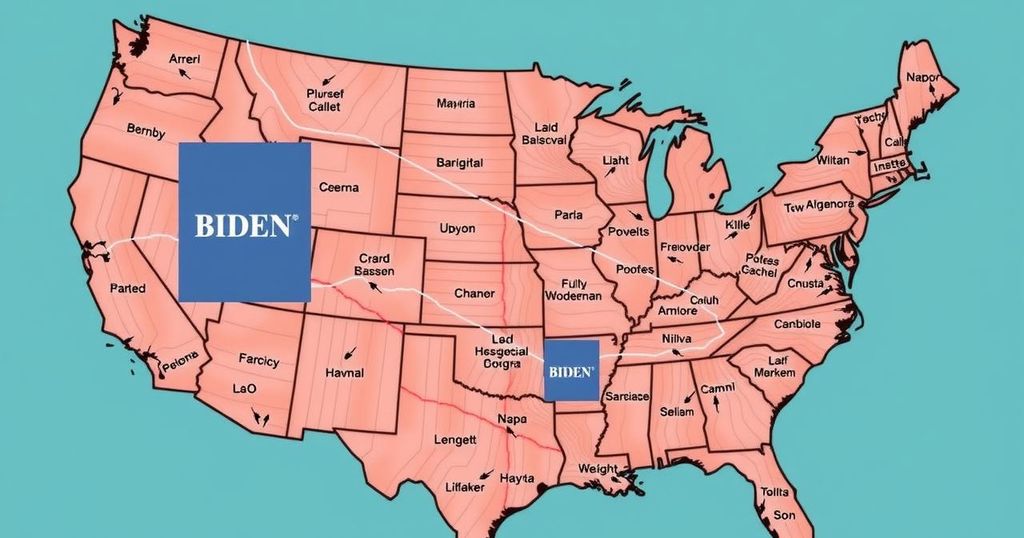The Biden administration has extended the Temporary Protected Status for nearly 1 million immigrants from countries facing crises. This allows beneficiaries to renew work permits and protection against deportation. The decision comes amidst concerns over the incoming Trump administration’s immigration policy changes that may affect TPS. Salvadorans, Sudanese, Ukrainians, and Venezuelans are among those benefitting from this extension, while new arrivals were not included, raising concerns among advocacy groups.
On Friday, the Biden administration announced an extension of temporary legal status for nearly 1 million immigrants currently protected under the Temporary Protected Status (TPS) program. The beneficiaries include approximately 234,000 Salvadorans, 1,900 Sudanese, 104,000 Ukrainians, and 600,000 Venezuelans. This measure allows them to renew work permits and deportation protections due to ongoing crises in their home countries. The TPS for El Salvador will remain in effect until March 2026, while the designations for Sudan, Ukraine, and Venezuela extend until October 2026.
The decision is significant in the context of the incoming Trump administration, which is anticipated to scale back TPS as part of its commitment to reform immigration policies. President-elect Donald Trump and Vice President-elect JD Vance have criticized the TPS program, asserting that it has been improperly prolonged beyond its intended temporary nature. During Trump’s first term, his administration attempted to revoke TPS for many immigrants, although these attempts faced legal obstacles.
Despite the TPS extensions, the Biden administration opted not to include new arrivals under this protection, facing criticism from progressive advocates who argue that doing so could complicate any mass deportation efforts by the incoming administration. For instance, redesignating TPS for Venezuela could potentially make an additional 450,000 migrants eligible. Advocacy groups have also urged the administration to allow Nicaraguan immigrants eligibility for TPS prior to Trump’s inauguration, but officials are hesitant, citing concerns over the perception of politicizing the program.
The TPS holders represent a diverse demographic of immigrants with varying legal statuses. Many Salvadorans have been in the United States for over two decades since the initial TPS designation following significant earthquakes in 2001. A considerable number of Venezuelans in the TPS program arrived through illegal entry, as the country continues to face economic and political turmoil, prompting mass migration. Similarly, a majority of Ukrainian TPS recipients entered the United States during the ongoing conflict following Russia’s military actions, facilitated by initiatives allowing for refugee sponsorship by private citizens.
Temporary Protected Status is a humanitarian program designed to provide refuge to individuals from specific countries experiencing crises such as ongoing armed conflict, natural disasters, or other extraordinary conditions. The program allows eligible individuals to reside and work in the United States without the fear of deportation. This legal status is subject to renewal and can be revoked by the Secretary of Homeland Security. Under the Biden administration, the TPS has seen extensions crucial for many immigrants from various nations, particularly those from El Salvador, Sudan, Ukraine, and Venezuela, whereas the incoming Trump administration’s immigration stance poses risks to these protections.
In summary, the Biden administration’s recent decision to extend the Temporary Protected Status for nearly one million immigrants underscores a commitment to provide necessary protections amid challenging conditions in their home countries. However, with the impending Trump administration, significant changes to immigration policies, including TPS, may threaten these safeguards in the near future. The complex dynamics surrounding TPS, and the implications for new arrivals, highlight the ongoing debates surrounding immigration policy in the United States.
Original Source: www.cbsnews.com






